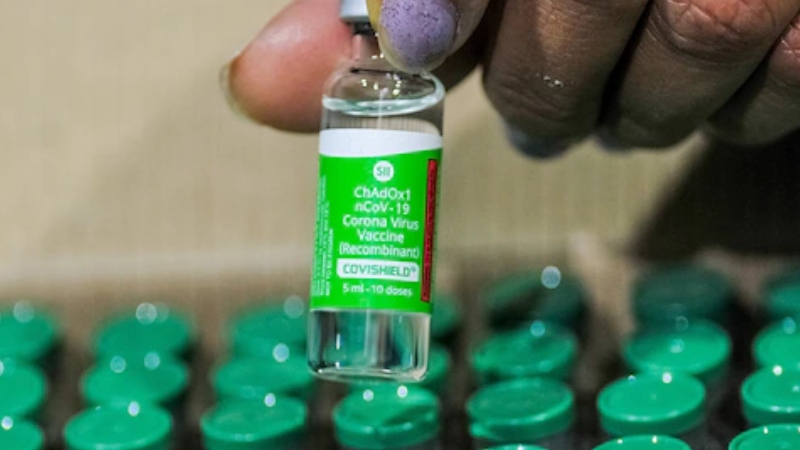
Concerning link between Covishield & blood clotting revealed
The study, conducted by scientists from Flinders University, Australia
VITT is triggered by a harmful blood autoantibody targeting a protein called platelet factor 4 (PF4)
New research has uncovered a concerning link between the AstraZeneca vaccine, marketed as Covishield in India, and a rare blood clotting disorder known as Vaccine-Induced Immune Thrombocytopenia and Thrombosis (VITT). The study, conducted by scientists from Flinders University, Australia, and published in the New England Journal of Medicine, reveals that VITT emerged in 2021 during the Covid-19 pandemic, particularly following the administration of the Oxford-AstraZeneca vaccine, which utilizes adenovirus vectors.
Researchers identified that VITT is triggered by a harmful blood autoantibody targeting a protein called platelet factor 4 (PF4). This autoantibody, produced by the immune system, mistakenly attacks the body’s own tissues, leading to the development of blood clots in unusual locations such as the brain or abdomen.
Further investigation unveiled that PF4 antibodies in vaccine-induced VITT and natural adenovirus infections exhibit identical molecular signatures. This indicates a common factor in both viruses and vaccines that stimulates the production of these harmful antibodies.
Professor Tom Gordon of Flinders University emphasized the clinical significance of these findings, suggesting that insights from VITT can enhance safety measures for both vaccine-related and natural blood clotting disorders associated with adenovirus infections. The study underscores the importance of ongoing research to improve vaccine safety and mitigate potential adverse effects.

Concerning link between Covishield & blood clotting revealed
The study, conducted by scientists from Flinders University, Australia
VITT is triggered by a harmful blood autoantibody targeting a protein called platelet factor 4 (PF4)
New research has uncovered a concerning link between the AstraZeneca vaccine, marketed as Covishield in India, and a rare blood clotting disorder known as Vaccine-Induced Immune Thrombocytopenia and Thrombosis (VITT). The study, conducted by scientists from Flinders University, Australia, and published in the New England Journal of Medicine, reveals that VITT emerged in 2021 during the Covid-19 pandemic, particularly following the administration of the Oxford-AstraZeneca vaccine, which utilizes adenovirus vectors.
Researchers identified that VITT is triggered by a harmful blood autoantibody targeting a protein called platelet factor 4 (PF4). This autoantibody, produced by the immune system, mistakenly attacks the body’s own tissues, leading to the development of blood clots in unusual locations such as the brain or abdomen.
Further investigation unveiled that PF4 antibodies in vaccine-induced VITT and natural adenovirus infections exhibit identical molecular signatures. This indicates a common factor in both viruses and vaccines that stimulates the production of these harmful antibodies.
Professor Tom Gordon of Flinders University emphasized the clinical significance of these findings, suggesting that insights from VITT can enhance safety measures for both vaccine-related and natural blood clotting disorders associated with adenovirus infections. The study underscores the importance of ongoing research to improve vaccine safety and mitigate potential adverse effects.
